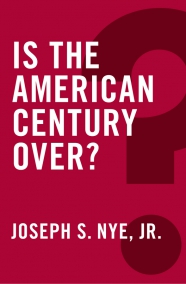 The question the U.S. is likely to face is not whether to restore the liberal international order. It is whether the US can work with an inner core of allies to promote democracy and human rights while cooperating with a broader set of states to manage the rules-based international institutions needed to face transnational threats such as climate change, pandemics, cyber-attacks, terrorism, and economic instability, argues Joseph S. Nye, Jr., emeritus professor at Harvard University and the author of Is the American Century Over? and Do Morals Matter? Presidents and Foreign Policy from FDR to Trump.
The question the U.S. is likely to face is not whether to restore the liberal international order. It is whether the US can work with an inner core of allies to promote democracy and human rights while cooperating with a broader set of states to manage the rules-based international institutions needed to face transnational threats such as climate change, pandemics, cyber-attacks, terrorism, and economic instability, argues Joseph S. Nye, Jr., emeritus professor at Harvard University and the author of Is the American Century Over? and Do Morals Matter? Presidents and Foreign Policy from FDR to Trump.
Insistence on liberal values in cyberspace, for instance, would not mean unilateral US disarmament, he writes for Project Syndicate:
Rather, the US should distinguish between the permitted soft power of open persuasion and the hard power of covert information warfare, in which case it would retaliate. Overt programs and broadcasts by Russia and China would be allowed, but that would not be true for covert coordinated behavior such as manipulation of social media. And the US would continue to criticize these countries’ human rights records. Polls show that the US public wants to avoid military interventions, but not to withdraw from alliances or multilateral cooperation. And the public still cares about values. RTWT







